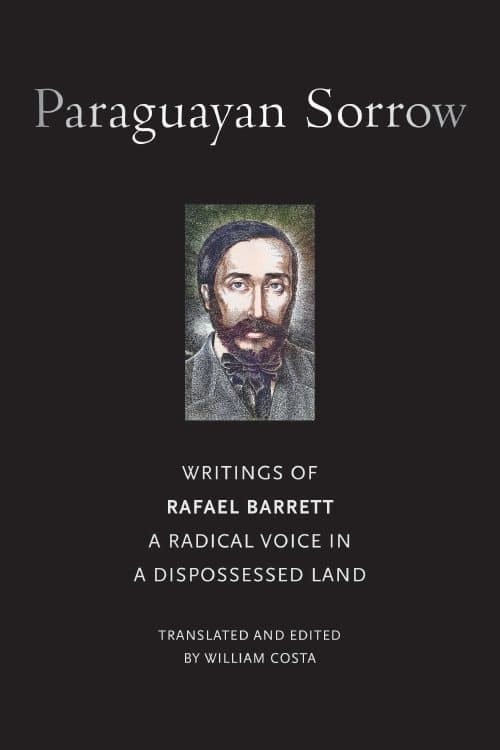Paraguayan Sorrow:
Writings of Rafael Barrett, A Radical Voice in a Dispossessed Land
By Rafael Barrett
Translated and edited by William Costa
240 pages / $26.00 / 978-1-68590-078-6
Reviewed by Sean Sheehan for The Prisma
He was referring to the War of the Triple Alliance (1864-70) – resulting in the death of half the country’s population – and, were Barrett alive now, he would feel equally wretched about the result of the 2023 election which saw the return of the right-wing clique that has been running Paraguay for all but five of the last 77 years.
Barrett was born in Spain in 1876, his father was English and his mother a scion of the aristocracy, and his decadent youth came to an abrupt end in 1903 when he left for Buenos Aires. The following year, when the editor of a newspaper asked him to cover an uprising in Paraguay, he set off “to see if I might find the bullet that kills me”.
He found a country that in the years after the War of the Triple Alliance saw 40% of its total land area being bought by just thirty-two companies. The introduction to Paraguayan Sorrow traces how Barrett cast off his elitist background as he came to see for himself the consequences of neo-colonial rule ruthlessly exploiting workers in an already impoverished land.
Another uprising in 1908 saw him driving a mule cart to help the wounded after a massacre that left one hundred and fifty dead.
He started his own paper, Germinal, was arrested and deported but returned illicitly to Paraguay and lived for a year on a remote ranch where his wife and son joined him. He writes of the ‘august wilderness’ of the ranch and his growing responsiveness to the landscape that teaches him to carry a ‘grand negation’ in the soul: “a relentless hate, or a fierce contempt, or an awful calm, or a granite resignation”. These are the qualities that shine through his prose and make Paraguayan Sorrow such a powerful and moving book to read. He writes about the subtropical jungle as a naturalist who knows “that it is not for the sake of aesthetics that the swallow adorns space with the graceful curves of its flight, but to devour invisible prey”. He writes about Guarani, the only native language in the Americas which, a footnote informs us, is spoken by the majority of a national population. Barrett is tremendously lyrical – “a bird crossing the sky resembles a thought”, he writes in passing – but he is also possessed with the spirit of an angry anarchist denouncing injustice.
William Costa, the translator and editor of Paraguayan Sorrow, is to be applauded for bringing Barrett’s writings to a wider audience.

Comments are closed.